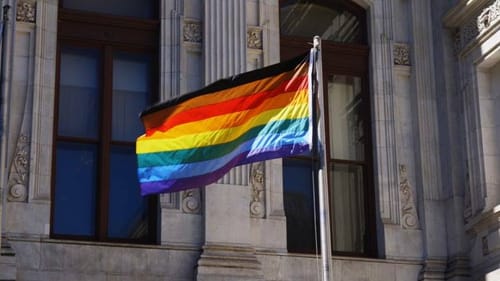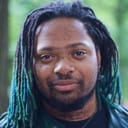Stay in the Loop
BSR publishes on a weekly schedule, with an email newsletter every Wednesday and Thursday morning. There’s no paywall, and subscribing is always free.
‘Tales’ of the Gayborhood?
How Netflix’s ‘Tales of the City’ speaks to Black queer folks onscreen and in Philly

The Netflix limited series Tales of the City takes Armistead Maupin’s novels into the present day. Like the three miniseries before it, this 2019 revival returns to San Francisco’s 28 Barbary Lane, featuring queer life, diversity, and real-world issues alongside high-stakes Netflix drama. But for many Black queer viewers, that representation falls short in a way that might especially resonate with the Philly community.
The show’s 10 episodes focus mainly on four white characters integral to the novels, including Michael Tolliver, an honored character in gay fiction. Michael, in this iteration, is the lovable uncle/big brother type. At 54, he is the oldest resident of Barbary Lane and dates Ben McKenna, a Black man around 26 years his junior. We don’t really get into Ben’s story, his job, or his family as we watch him kiss, fight, and love Michael. Ben is just kinda there. But as a black gay man myself, I latched onto the representation and felt a familiar heartbreak.
“The least we can do”
In episode 4, Michael takes his beau to a dinner party. The guests are all gay white men around Michael’s age, all clearly wealthy. The viewer sympathizes with Ben, who feels out of place as the rest revel in recounting trips and lush treatment. Then things take a turn for the bigoted—and the San Francisco of Netflix’s Tales felt a lot like the Philadelphia Gayborhood.
One of the men refers to a Peruvian sherpa, or mountain guide, as “Pedro, Jorge, whatever,” and jokes about being carried around Machu Picchu. They talk about a queer club in Mexico City, referring to it as a “tranny club.” They then turn that slur on each other and laugh. This sets Ben off. He attempts to calmly defend the people who aren't in the room.
“I think it’s important that we call other people what they want to be called. That’s the least we can do,” he says. “What you call someone ... is about dignity; it’s about visibility. Especially when you’re coming from a place of privilege.”
“Too angry”
“What do you see when you look at me? A rich white man?” This is the start of an answering monologue from a very rich, very white man in the room. In it, he calls Ben ignorant, young, and entitled for wanting dignity and visibility. By this point I am either shaking, yelling at the TV screen, or hiding my head in my hands, because this man and the people around him feel they hold the moral high ground. Their defense? The horror and trauma they endured during the AIDS crisis. To this man and the ones nodding in agreement, using the language they use and expressing the power they have is one of their rewards for surviving the 1980s and ‘90s.
I’ve been Ben McKenna and I’ve defended other Bens. I’ve tried to explain calmly that oppression doesn’t justify privilege. I have talked about offensive language, microaggressions, and passive racism—and received accusations of being too angry or not having been “there” when the freedom to be this open was won.
The AIDS crisis was a horrific time for LGBTQIA+ people, and it should be honored and respected. But talks like these ignore the Black queer and trans people who led, fought, and died for those freedoms. And what does this dinner-table rant say to the Black queer people watching Netflix?

Meanwhile, in Philly
The Philadelphia LGBTQIA+ community, or rather its multiple divided communities, erupt into this conversation periodically. Whether it’s the controversy over Philly’s inclusive Pride Flag or the infamous iCandy video, it’s clear that a community built on the outskirts of mainstream culture still has a host of mainstream issues. People argued about how the Pride Flag never had anything to do with race, completely disregarding that intersectional ignorance is the issue. People justified their continued patronage of iCandy by explaining how owner Darryl DePiano apologized, regardless of whether the Black people who heard him use the N-word were still affected by it. These kinds of sentiments, ones that lump all queer experiences together, shed some light on the division in the community. How can I feel safe in your space when you either speak for me or ignore me? Why would I want to speak to you at all?
Failure and silence
We don’t have answers in the Philly community yet, and Tales of the City doesn’t exactly come up with one. The show fails Ben, or more specifically, Ben’s Blackness and, by proxy, Black queer people watching. Michael says nothing substantial during the verbal attack; he only apologizes later for not defending his boyfriend. He’s never once asked to expose his own thoughts about the racism on display. In a later episode, Harrison, the host of the party, claims they were all drunk rather than claiming the bigotry we all witnessed. It is very clear that the white characters—and the show—want us to move on. The racists in the scene are absolved and Ben is silent.
Men like this misgender and insult, go on Facebook rants, and get recorded on camera. And then they apologize. Or they don’t. They are forgiven and humanized regardless. And we who oppose them are labeled “extra” or “angry,” or we’re as silent as Ben to preserve our emotional safety.
Living through it
For Ben, this story line was simply a test of his relationship with a significant other. For the purposes of the narrative, there’s almost no point in him being Black at all. His pain serves a white man with a fuller story and stronger needs. But what Ben heard is said to an entire community every day.
To some, I am a gay millennial with no concept of struggle. To others I am a Black man, making everything about race. And some don’t think of me at all, especially not when it comes to the fight for gay rights. We cannot be Black, queer, oppressed, and visible. Tales of the City did a wonderful job tackling other points, but it brought up this important subject and didn't do enough with it. As someone living through it, I expect and deserve more, on and off-screen.
Sign up for our newsletter
All of the week's new articles, all in one place. Sign up for the free weekly BSR newsletters, and don't miss a conversation.

 Jarrett McCreary
Jarrett McCreary